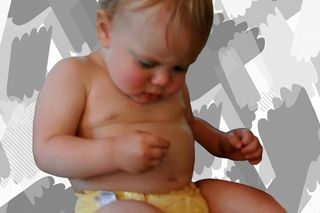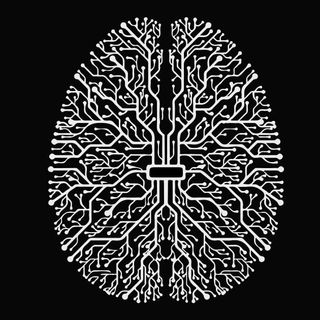
How the Infant Microbiome Shapes Kids’ Long‑Term Health
From borderline science fiction, to accepted scientific truth.

The human microbiome, and in particular the gut microbiome, have received a lot of airtime in recent medical reporting. Earlier, the idea that invisible microbes living in our bodies could highly influence immunity was partially dismissed as fantastical, but it has now become an important area of scientific study. In particular, medical researchers are turning their attention to how the infant microbiome is created, and what impact is has for babies’ future health.
What is the human microbiome?
The microbiome refers the entire set of microbes that populate the human body, including bacteria, fungi, viruses, and protozoa. There are trillions of them — as many or more than the number of cells that make up the human body. Generally, they serve an important purpose: to keep us healthy.
These microorganisms inhabit the mouth, gut, skin, lungs, vagina, placenta, and uterus, nose and digestive tract. Increasingly, as research into the microbiome advances, it is becoming clear these microorganisms play a key role in regulating and balancing our immune and digestive systems, producing and absorbing vitamins, and protecting against dangerous bacteria and other antigens.
How does the infant microbiome form?
The microbiome starts forming in utero, though it is not clear to what degree. Researchers are aware the infant microbiome differs by gestational age, because babies born prematurely are more likely to suffer from gut microbiome abnormalities.
But since most premies are born by C-section, scientists have not fully parsed to what degree prematurity versus delivery method influences the microbiome. But the prevailing hypothesis holds the initial population and establishment of an infant’s microbiome largely occurs during childbirth, when the baby passes through the vaginal canal. Because of this, researchers are now studying the impact, if any, of Cesarean sections on the infant microbiome (with mixed conclusions).
After childbirth, newborns pick up microorganisms from skin-to-skin contact with parents or other caretakers. In this way, breastfeeding plays a large role in populating the infant microbiome, as babies pick up microbes from the mother’s skin and via her breast milk. Scientists are actively researching the impact of sole formula-feeding on the infant microbiome, as many believe the composition of human breast milk, which can contain live cells, may be instrumental in the early population of a healthy gut. This skin-to-skin transference of microbes is another partial explanation of the difference between premies’ and full-term infants’ microbiomes; extended hospitalization or time spent in incubators — as many premies might spend in a NICU — can mean a baby gets less skin-to-skin contact and less breastfeeding during this pivotal stage in microbiome formation.)
Early diet is also known to influence the gut microbiome, but it’s not yet clear how, nor how permanent this influence is. Researchers do know that the gut microbiome is relatively stable by roughly age 2. After that, it is very difficult to change the microbiome through diet alone; it has a tendency to revert and rebalance back to its original composition. It takes long-term changes in a person’s geographical location, environment, home, pets, and/or interaction with other people living in the same house to really alter the microbiome of an older child or adult.
Finally another potential influence on a baby’s microbiome is antibiotic medication. Antibiotics, which work by killing bad bacteria in the body, can decimate the good, healthy gut microbiome in the process. For adults, this may cause little damage, as their gut microbiome is typically able to stabilize. But for children under age 2, antibiotics can alter their microbiome, with significant, long-term consequences.
How does an infant’s microbiome affect their later health?
First, an imbalanced microbiome can have near-term effects: Serious diseases such as enterocolitis are more likely to appear in premature infants with an abnormal gut microbiome.
Beyond this possibility, scientists believe the microbiome populated during infancy sets the stage for general good health in the future. Specifically, we now know it is likely diseases such as asthma and diabetes have their earliest roots in the developing infant microbiome. Further, scientists are more convinced than ever that the gut microbiome plays a prominent role in immunity throughout life.
More study is needed to determine how this important foundation can be set correctly for infants, and how childhood imbalances lead to good or bad adult health. For now, a few things are clear: giving birth vaginally, breastfeeding, and avoiding antibiotics in the early years are a few of the known ways to give babies a good head start on a healthy gut microbiome.
Related


Study Suggests Clinical Depression Is a Progressive Disease
